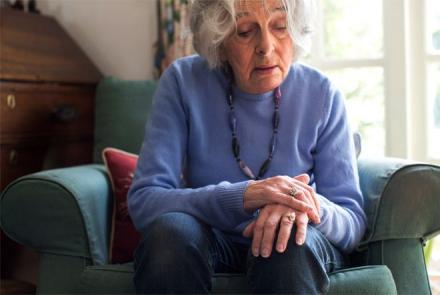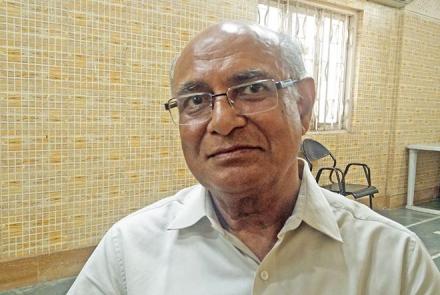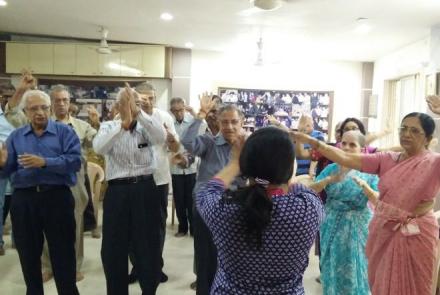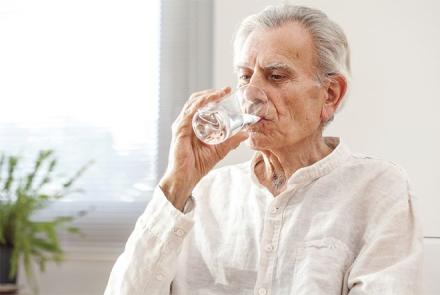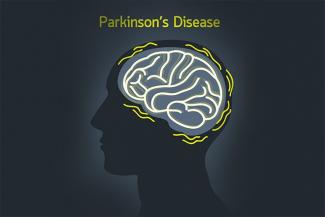
The lesser known non-motor, psychological symptoms of Parkinson’s disease such as depression and anxiety can be more difficult to manage and more disabling than the characteristic motor problems like tremors and rigidity. Learn more about it from psychologist Meghana Srinivasan from Parkinson’s Disease and Movement Disorder Society (PDMDS).
Parkinson’s disease is primarily known to be a neurological disorder that is mainly characterised by problems in body movements that affect daily functioning. These are referred to as motor symptoms of Parkinson’s disease; such as tremors, stiffness, slowness of movements, dyskinesia and balance issues.
However, several non-motor symptoms also occur that affect a patient’s daily functioning, quality of life and his/her ability to adhere to treatment plans given by the health provider. In fact, some of these non-motor symptoms are known to precede the onset of motor symptoms and sometimes could also be side effects of Parkinson’s medications.
Non-motor symptoms of Parkinson’s disease
It is important to remember that not all these symptoms affect every person with Parkinson’s (PwP).
Psychological Symptoms of Parkinson’s Disease:
Anxiety and depression are common reactions to being diagnosed with Parkinson’s. These are severe psychological illnesses that affect a person’s mood, motivation, sleep, physical health and ability to carry on with daily activities. Depression and anxiety can also affect caregivers of PwPs as they struggle to manage households, work and the increasing dependency of patients.
Clinical depression can affect long term outcomes by hindering their ability to stick to treatment plans. How can a PwP or family member recognize depression? Symptoms are often observable by others around.
- Feeling sad, irritable, angry, frustrated, guilt consistently over weeks or days
- Lack of enjoyment in activities that the PwP enjoyed earlier
- Poor concentration, forgetfulness, fatigue or excessive restlessness
- Suicidal thoughts may be present which the PwP may not articulate openly
- Loss of motivation, negative attitudes toward the self, others and the future
- Increase or decrease in sleep, sleep problems including oversleeping
Anxiety affects up to 40% of PwPs and can take different forms.
- Excessive, uncontrollable worry
- Fear of falling, fear of showing Parkinson’s symptoms like difficulties in writing, eating, walking and communicating with others, feelings of embarrassment and a need to avoid social situations because of these reasons.
- Intrusive, uncontrollable thoughts about contamination, order etc. and repetitive behaviours may be present.
- Fear that a medical emergency can happen anytime, that symptoms in ‘off’ periods will be unmanageable and panic attacks are also common.
- Physical symptoms like breathlessness, upset stomach, excessive sweating, mind going blank etc. can also occur.
Other mood related problems like
- Feelings of sadness, disappointment, anger, worry are common when one first hears of the diagnosis. PwPs worry about their future, how they will manage their difficulties and often think that “everything would be more challenging now.”
- PwPs often feel helpless and fearful about how their disease will progress and how dependent they may be on their family members as the disease progresses.
- PwPs often feel confused with all the information provided by their doctor, their family members, the internet and others suffering from Parkinson’s.
- Apathy i.e. a lack of enthusiasm, interest can also be a common reaction to diagnosis and affects a PwP’s motivation to stick to treatment regime.
Psychosis is another serious psychological concern in PwPs but not commonly discussed. Psychosis affects a PwP’s touch with reality. Two main symptoms of psychosis include:
- Hallucinations: PwPs may see objects, people, animals etc that are not actually present; they may hear sounds or voices even though there is nothing around to create these; they may smell things or feel sensations even though nothing is present.
- Delusions: Delusions are basically strongly held beliefs that are, in reality, false. However, these beliefs are so strong that it is difficult to convince the people experiencing them that this is not really happening to them.
Hallucinations and delusions can be very scary for PwPs who experience them, and families may not always understand what exactly is happening to the PwP.
Cognitive issues like memory and concentration problems, visuospatial problems, deficits in language, problems in learning and remembering new information, slowed thinking, difficulty in planning everyday tasks etc.
Impulse control disorders, though rare, are also seen in PwPs. They are seen engaging in excessive gambling, excessive eating, excessive shopping and inappropriate sexual behaviours. These can be embarrassing for caregivers, but for PwPs they are intense urges that are difficult to control.
Sleep problems like inability to fall asleep, disturbed sleep due to frequent urination, nightmares, daytime sleepiness are common in Parkinson’s. Sleep problems can often affect daytime activity levels and thus affect your ability to stay disciplined with your routine.
Strategies for Managing Psychological Symptoms:
It is important to remember that while psychological symptoms are common and seem extremely disturbing, they are a part of the management of Parkinson’s disease and well researched treatment options are available. A psychologist or psychiatrist can be easily accessed to get the right kind of guidance and support. If you feel your PwP or caregiver is -
- Showing signs of depression, be sure to tell your doctor. Depression can affect a PwP’s physical health also. Social support plays a huge role in keeping you occupied and positive.
- Showing signs of anxiety, don’t dismiss it as a normal reaction. Yoga, meditation, deep breathing exercises can help you relax. Knowing the source of your anxiety can also help.
- Experiencing hallucinations, inform your doctor so that he can make changes in your medications.
- Experiencing delusions, be sure to not argue or agree with them. Arguing, laughing or dismissing their delusions will worsen the situation.
- Suspicious of you, remember to not express your disappointment or anger openly. Be open to discussing their feelings, empathise with them. For instance, “I understand that feeling this way is scary.”
- Experiencing cognitive difficulties - A number of simple, everyday activities can help you with your cognitive difficulties. Cognitive rehabilitation would help in dealing with certain cognitive difficulties and learning strategies to deal with them better.
- Showing signs of impulse control problems, inform your doctor to get the right guidance. Even though these behaviours may be embarrassing for you as an observer, many PwPs are unaware of them and are not behaving so intentionally.
- Experiencing sleep problems, some simple sleep hygiene tips can be useful. Avoid caffeine, alcohol, excessive fluids, heavy meals close to bedtime. Keep away from mobile phones, TV and iPads just before going to bed. Sleep in a cool, dark room that is well ventilated and has a small light to guide you at night. Exercise regularly and maintain a fixed time for sleeping and waking up.
Other Non-Motor Symptoms of Parkinson’s:
- Speech and swallowing difficulties like reduced volume, unclear/slurred speech, etc. are common in PwPs. They face problems with swallowing such as choking while eating/drinking, taking longer to swallow and other problems such as drooling (especially, during the night time) and dryness of mouth. Speech therapy exercises and tips to improve swallowing will help deal with these symptoms which can improve confidence, communication and intake of food.
- Urinary difficulties like frequent need to urinate, the need to urinate urgently and difficulty initiating urine are quite common. However, these could also be due to old age and medical conditions like diabetes or prostate. Exercises to strengthen the bladder, medication, restricting water intake before bed time and reducing caffeinated drinks are some remedies.
- Fatigue is also commonly experienced by PwPs. It can be managed by maintaining a regular, less strenuous routine and can sometimes also be a sign of depression.
- Pain in Parkinson’s can be due to musculoskeletal reasons, dystonia or nerve related problems. Pain can be better managed with exercise, medication and counselling techniques that can focus on relaxation and visualization.
- Constipation is a very common complaint from PwPs; it occurs because the muscles involved in bowel movements become slow or rigid while some medications can cause constipation. You can improve constipation by increasing your fibre intake, drinking more water during the day and exercising regularly.
Parkinson’s disease is a complex neurological condition that has several psychological and physical aspects. However, medical and psychological help is always available once we learn to identify and acknowledge that these symptoms exist.

